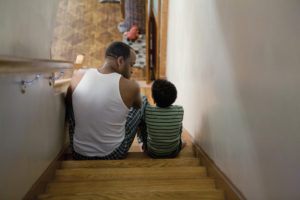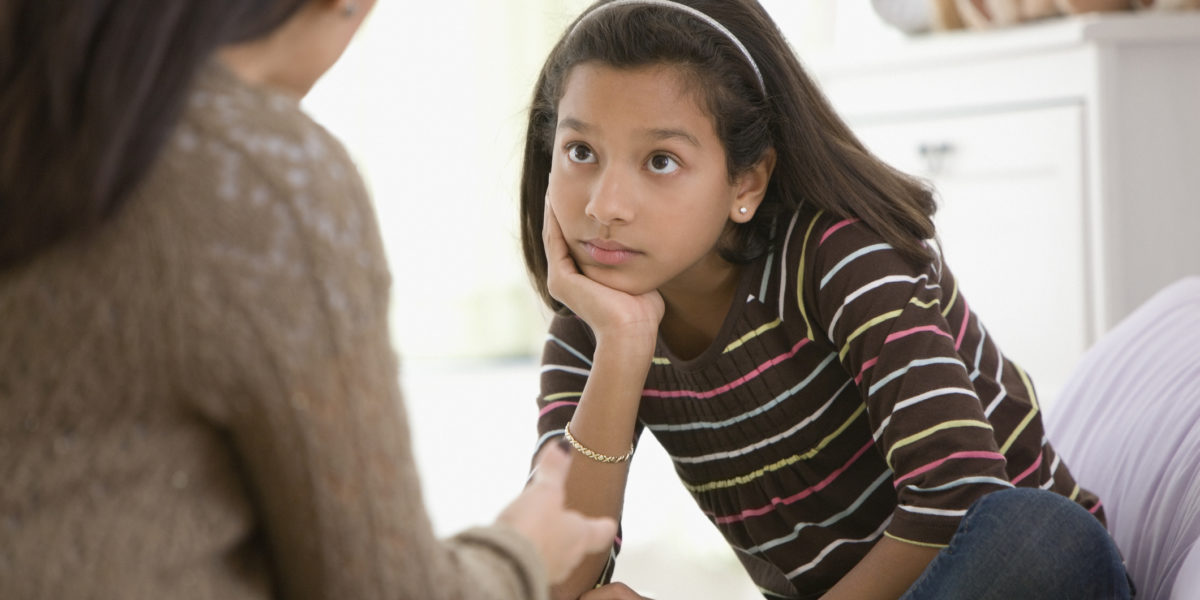Hearing about acts of violence and disaster in the world can be scary and unsettling for everyone, grownups included. But parents can help kids understand and handle their feelings by talking to them and allowing them to express their emotions, including sadness and fear.
If you or someone you know is having thoughts of suicide or self-harm, contact the National Suicide Prevention Lifeline at 1-800-273-TALK (1-800-273-8255). Crisis Text Line: 741741
Simple conversations help
Children are very curious about the world around them, so it’s natural to have questions. Parents can help make sense of this information by talking in simple and concrete terms about events, and also sharing the actions authorities and others have taken to stop further violence.
It’s understandable for children to experience anxiety after hearing about a violent event. But if parents, caregivers or other loved ones notice warning signs these warning signs, seek professional help:
- Heightened or uncontrollable anxiety.
- Changes in eating, sleeping, or self-care.
- Risky behaviors.
- Hyperfocus on trauma events.
- Suicidal statements or wishing “not to be here.”
Families can seek help from community mental health providers, ChristianaCare’s Pediatric Behavioral Health Department, or Crisis Services.
Tips for talking
Pick a calm and neutral environment to talk with your child. Maybe it’s on the ride home or after dinner. Allow them to share their understanding of the events, their feelings and their conclusions. Gently correct any misinformation they may have gathered. Ask questions. You can start with, “What are kids saying at school about what happened on the news?” Or ask, “What do you think about your school’s safety announcement?”
Listen. This is a great opportunity to sit with your child and understand their experience rather than guessing or assuming their experience. Allow your child the space to express worry for their own safety and the safety of their friends. These emotions are natural and need expression. Develop a plan with your child to give them a sense of direction if they were to face a similar situation.

Be aware of the media your children are consuming. It is appropriate to limit exposure to traumatic events on social media and TV. Take information breaks and change the focus to other topics and activities. Children may continue to be curious, so parents should schedule time together to watch or read reputable news outlets and discuss new information rather than allow unmonitored or excessive viewing of traumatic events.
Share your feelings with your children. Talk about how violence makes you feel, even if that feeling is fear. This can help children know that they’re not alone in what they’re feeling. And don’t worry if you don’t have all the answers. If a child asks, “Why do bad things happen?” it’s okay to say you don’t know. But you can explain how adults in their lives, like teachers and principals, work hard to keep children safe.
Remember yourself too
Be aware if you need more support. Contact your health care provider or contact ChristianaCare’s Behavioral Health Services.
Take time to process your own feelings. Violent tragedies, especially those affecting children, are particularly difficult for parents, who may imagine themselves in the same situation and the resulting distress. It is also easy to feel guilty about being relieved your child is safe while another young person is not. All are common and natural responses.
Give yourself space. Allow yourself the space to experience your emotions and the memories, thoughts and sensations they raise. Find a trusted friend or family member to share your concerns and fears. Be aware if you are lingering on these emotions and need more support. Contact your health care provider or contact ChristianaCare’s Behavioral Health Services.



